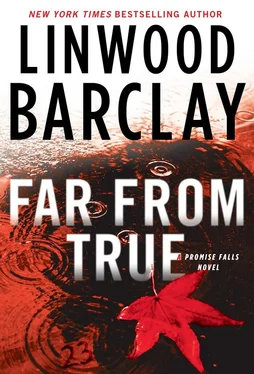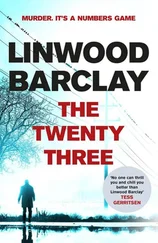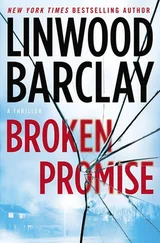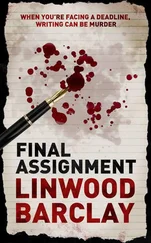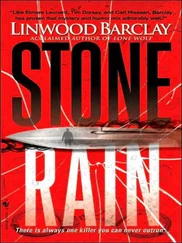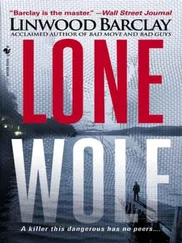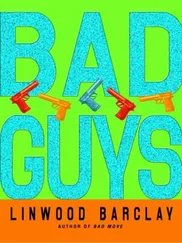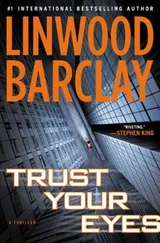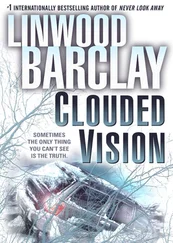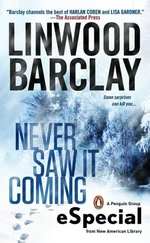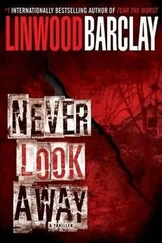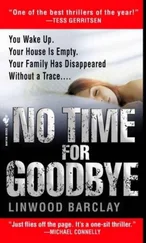Andover had tried, without success, to get Gaynor out on bail while he awaited trial. He’d argued that Gaynor had never been in trouble with the law before and was an upstanding member of the community. The judge didn’t buy it.
Gaynor was due to be transferred to another facility, given that the local jail was not intended to keep those awaiting trial for extended periods.
“What’s this about?” Andover, dressed casually in jeans and a button-down collared white shirt, asked Duckworth.
“Like I said, a few questions,” the detective told him.
Bill Gaynor, a good five or more pounds thinner since Duckworth had last seen him, was brought to an interrogation room. He was wearing lightweight hunter green pants and a T-shirt. He and Andover sat side by side across the table from Duckworth.
“What’s this about?” Gaynor asked. “What’s going on?”
“Mr. Gaynor,” Duckworth said, setting down a cardboard tray with three coffees. “There’s some creams and sugars here if you need them.”
Gaynor looked at his lawyer, then back at Duckworth.
“How are you this evening?” the detective asked, setting a coffee in front of him.
“How am I? Seriously? They wouldn’t even let me attend my own wife’s funeral. That’s how I am.”
Duckworth nodded sympathetically. “That’s a terrible shame. You’d have thought they could have found a way to accommodate you.” He pried off the plastic lid of his coffee, blew on it. “Mr. Gaynor, how long have you lived in Promise Falls?”
“What?”
“You didn’t grow up here — isn’t that right?”
“I grew up in Albany,” he said, ignoring the coffee in front of him. Andover, however, had reached for the third one and was tearing off the ends of two sugar packets. “When Rosemary and I were looking for our first house, we came here. Houses were more affordable here, and it was an okay commute to my work in Albany.”
“When was that?”
“That was around — it was in 2002.”
“And you’ve been in that house ever since?”
“No. We were there eight years. Then we moved to Breckonwood.”
“Your current residence.”
“ This ,” he said, looking around, “is my current residence.”
“Not for long,” Andover said, his eyes on Duckworth.
“And you were still commuting to Albany all that time? Every day?”
“Not every day. I usually worked from home one or two days a week. I have — had a lot of local clients.”
“That’s going to get cold.”
“I don’t want it,” Gaynor said.
“So, three, four years ago, you’d have been working from home, as you say, a couple of days a week.”
“That’s right. Usually Thursday and Friday.”
“Did you have a lot of people you did insurance work for right here in Promise Falls?”
Gaynor shrugged. “Maybe two, three dozen.”
“Those clients included the Fisher family. Isn’t that right?”
“Fisher?”
“Walden and Elizabeth Fisher.”
“Uh, yes, I think, maybe—”
Andover stepped in. “What’s going on, Barry?”
“I just wanted to know if Mr. Gaynor was the insurance agent for Walden and Elizabeth — she passed away recently, by the way — Fisher. Were you?”
“Yes,” he said. “There was a hundred-thousand-dollar policy on Beth — on Elizabeth — that was paid a while ago.”
“So you know the Fishers.”
“I do,” he said.
“So then you would also have known their daughter, Olivia.”
Bill Gaynor’s head slowly went up and down, once. “I did. But she didn’t have life insurance. Of course, she was on the family’s automotive policy. Their car insurance.”
“Right,” Duckworth said, taking a sip. “But even though Olivia didn’t have a life insurance policy, as someone who worked with the family on their insurance needs, I’m sure you must have reached out to them at the time of her death. To offer your sympathies, see how they were managing.”
Gaynor looked at his lawyer, as though seeking guidance. He said to Duckworth, “Well, sure, of course. I felt terrible for them.”
“And you kept in touch with the Fishers after.”
“Like I said, we still handled the life insurance policies for Beth and Walden. After Beth passed away, Walden canceled his policy. He said there wasn’t much need for it. He didn’t have anyone left to provide for.”
“Did you know Olivia well?” Duckworth asked.
Andover raised a palm. “Just what kind of fishing expedition is this, Barry?”
“Olivia’s murder remains unsolved. We haven’t given up on it. Mr. Gaynor, I thought it would be worth talking to you to see if you might remember anything that might help us in the investigation. Maybe Olivia confided in you. Told you something that didn’t seem important then, but does now.”
“I barely remember her,” he said.
“Maybe this will help.” Duckworth took from his jacket a reproduction of a three-by-five high school yearbook photo of the dead woman, placed it flat on the table. “This was from her senior year, before she went to Thackeray.”
He glanced at it. “Sure. I mean, I remember what she looked like, but I don’t even know if I ever had a single conversation with her. Does this have — you’re not thinking that what happened to Rose was in any way connected to her, are you?”
Duckworth tossed it back to him. “Do you think there might be a connection?”
“You think whoever killed Rose also killed the Fisher girl?”
Duckworth tapped the picture with his finger. “You notice anything interesting about her?” he asked Gaynor.
“Interesting?”
“Maybe it’s just me,” the detective said, “but you look at her hair, the shape of her face, she reminds me a bit of your wife.”
Gaynor studied the picture, then looked Duckworth in the eye. “What the hell are you talking about? What’s going on?”
“We’re done,” Andover said.
“Did Jack kill both of them?” Gaynor asked. “Is that what’s going on?”
“No,” Duckworth said. “I’ve pretty much ruled him out.”
“Then—” He stopped himself. “Jesus, you think I killed Rosemary? You think I killed my wife? And this girl? What the hell is wrong with you? I barely knew Olivia, and you know I was in Boston when Rose died. You know that!”
“Bill, enough,” Andover said, putting his hand on the man’s arm. “Enough!” He looked at Duckworth and said, “For God’s sake, leave the poor man alone. You got someone out there killing animals and blowing up drive-ins, but you’re in here harassing a man who lost his wife. You must be proud.”
Duckworth retrieved the picture, put it in his jacket, pushed back his chair, and stood. “I want to thank you both for meeting on such short notice. You mind tossing those coffees in the trash on your way out?”
By the time he reached his desk, the phone was ringing.
“Duckworth.”
It was the front desk. “There’s a guy here wants to see you. Martin Kilmer. Says he’s Miriam Chalmers’s brother.”
One of the four people killed at the drive-in. Her body had yet to be positively identified. Duckworth said he would be right out.
Martin Kilmer was about forty, trim, six feet tall, and decked out in an expensive suit, a white shirt, a silk tie, gleaming black dress shoes.
“Mr. Kilmer, I’m Detective Duckworth.”
“I got a call from Lucy Brighton, my sister’s stepdaughter,” he said abruptly. “She told me about the accident. She identified her father, but didn’t identify Miriam. So I’m here. How the hell did something like this happen? A goddamn screen falling over?”
“We’re still trying to find that out.”
Читать дальше
